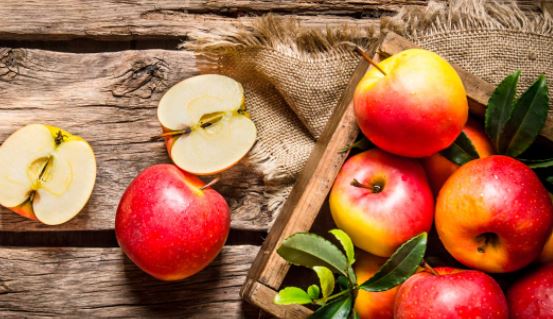BY SYLVESTER OJENAGBON
You must have heard this axiom at some point in your life: “An apple a day keeps the doctor away.” If you did not hear it as a child, you must have heard it as an adult. Even now, many can see their school teachers in their mind’s eye restating this axiom. Its veracity was not in dispute then, and I do not think many have bothered to find out whether or not it is true. We somewhat believe that if we can eat at least an apple a day, then we will not have any business with the doctor.
The truth is that apple is one of the most consumed fruits around the world. It can be eaten raw, cooked, or juiced. Its reasonable affordability and wide availability, especially in regions with temperate climates, has made it a staple in many diets.
One of the reasons apple is touted as a wonder fruit is that it is abundant in antioxidants, particularly flavonoids like quercetin and catechin. These compounds help protect cells from damage caused by free radicals, reducing the risk of chronic diseases like heart disease and certain types of cancer. Apples are equally a good source of both soluble and insoluble fibre. Soluble fibre helps lower cholesterol levels, while insoluble fibre aids in digestion and promotes regularity.
Advertisement
Apples also provide a decent amount of vitamin C, which supports immune function and collagen production and contains potassium, which is essential for heart health and blood pressure regulation. The fact that apples are relatively low in calories and high in fibre makes them a satisfying and filling snack. Including apples in one’s diet can help especially those watching their weight feel full and reduce overall calorie intake, thus aiding in weight management.
Although an apple a day might not in reality completely keep doctors at bay, incorporating it into a balanced diet can significantly contribute to overall health and well-being. The axiom ‘An apple a day keeps the doctor away’ therefore serves as an allegorical statement that reminds us of the importance of incorporating fruits like apples into our daily diets. It reminds us in some way of the need for a healthy, balanced diet.
You can therefore imagine my shock when I went out recently to pick up some fruits for the house (something I had not done in a while), and my eyes fell on the apples. I was taken aback when the seller told me an apple was N500. That, I thought, was the joke of the year. How can an apple that sold for N200 in the recent past be selling for N500? I thought it was either the seller wanted to cheat me or things were much more expensive in that place, as we had only recently temporarily moved there. How can apples be more expensive in this place than in Lagos? I asked. The seller had no idea how much apples were selling for in Lagos, so he simply reiterated the fact that it was N500 for one.
Advertisement
I lamented to my wife and other family members when I got home, but they all reminded me that I had no idea of the current price of apples even in Lagos. This happened in December last year, less than two months ago. Today, the price of the same size of apple has gone up to N700. Some are even selling it for N800 or N900. An average Nigerian can simply no longer afford an apple a day.
Now, this is not just about apples anymore, as the prices of other fruits have similarly gone up. The big size of cucumber that sold for N200 in the not-too-distant past now sells for N700. And oranges? They have suddenly become four for N500, instead of the 10 for N500 in the recent past. It is unimaginable that prices can change so drastically, and so dramatically, within a few months in spite of the many assurances by the government and its top officials that things have started looking up.
And what can be said of apples and other fruits can also be said of every food item: prices have gone irretrievably beyond the reach of the average Nigerian. The worst hit are those who have been advised by their doctors to avoid certain foods. Many who had embraced healthy living as part of the solution to their health challenges (or as a pre-emptive measure) are suddenly falling back on whatever they can find to eat. They know this is not good for their health, but they would rather eat and at least stay alive, while they watch their health deteriorate.
The government therefore needs to urgently tweak its strategies with a view to tackling the problem of skyrocketing food (and fruit) prices which, from every indication, are not showing any signs of slowing down. Throwing handouts at some people every now and then is not the solution to the current hardship and deprivation experienced by the vast majority of Nigerians. Governments at all levels—federal, state and local—should be involved in seeking a lasting solution to this gargantuan problem. After all, only the living and healthy can enjoy the bright future that the government has promised the Nigerian people, and keeps promising.
Advertisement
Ojenagbon, a health communication expert, lives in Lagos.
Views expressed by contributors are strictly personal and not of TheCable.
Add a comment









